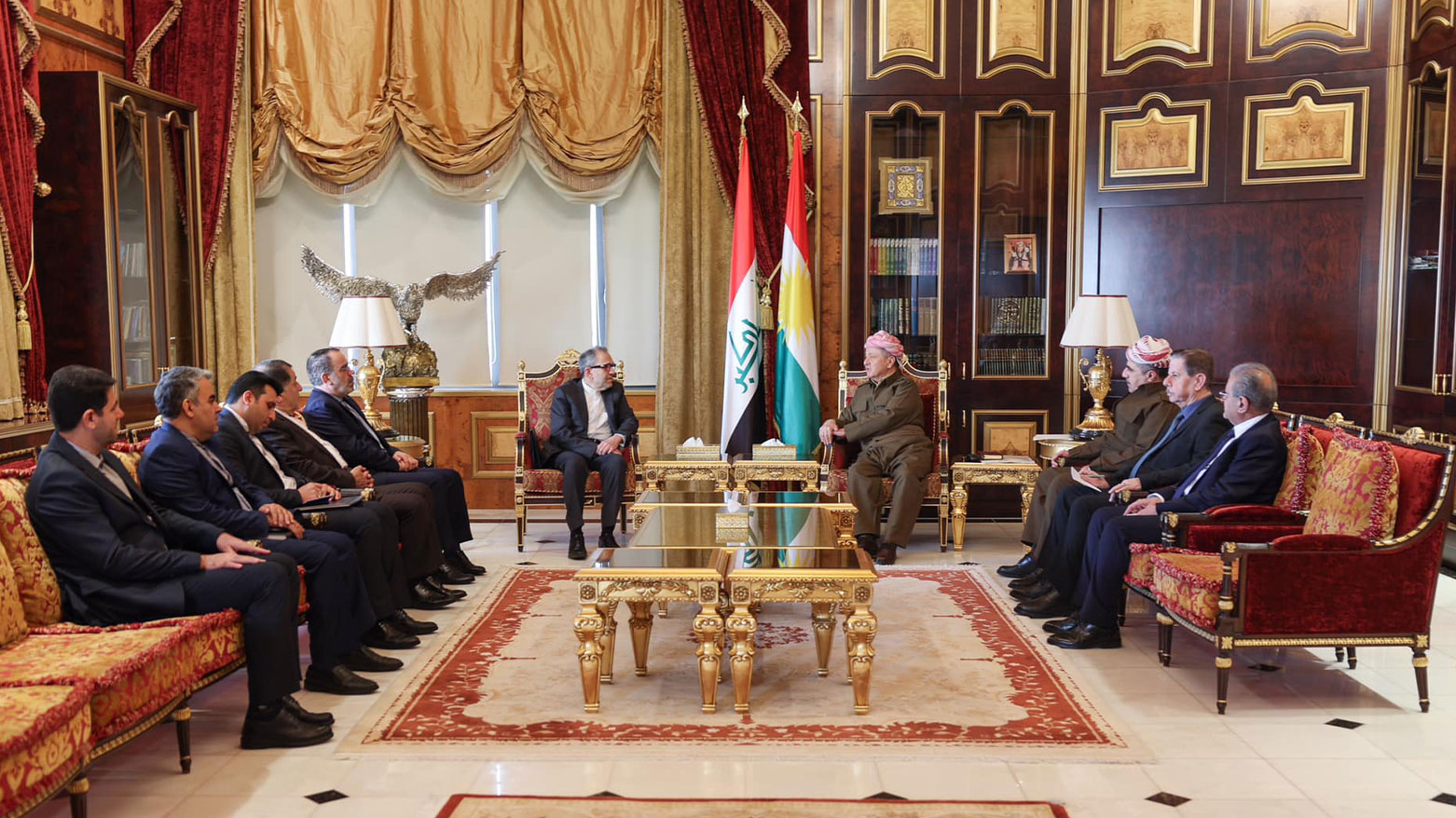Erbil-Tehran Relations in Focus as President Barzani Receives Iranian Envoy
Discussions centered on the relationship between the Kurdistan Region and the Islamic Republic of Iran, with both sides reaffirming their commitment to maintaining and strengthening bilateral ties across various sectors based on mutual interests.

ERBIL (Kurdistan24) – President Masoud Barzani received a senior-level Iranian delegation on Monday, at his office in Salahaddin. The delegation was led by Majid Takht Ravanchi, Iran’s Deputy Foreign Minister for Political Affairs, accompanied by senior advisors.
Discussions centered on the relationship between the Kurdistan Region and the Islamic Republic of Iran, with both sides reaffirming their commitment to maintaining and strengthening bilateral ties across various sectors based on mutual interests.
The meeting also addressed Iraq’s evolving political landscape and broader regional shifts. Both parties acknowledged the complexity of ongoing changes in Iraq and the Middle East, underscoring the need for continued dialogue and cooperation to navigate emerging challenges.
The Kurdistan Region of Iraq and Iran share deep historical, economic, and political ties. Iran has been a key regional actor in Iraq, particularly following the 2003 U.S.-led liberation operation, and has maintained close relations with Kurdish political factions. Trade and security cooperation remains central to their engagement, with Iran playing a crucial role in energy exports and cross-border commerce.
In recent years, shifting regional alliances and geopolitical tensions, including U.S. sanctions on Iran, have influenced Erbil-Tehran relations. However, both sides have continued diplomatic engagements to ensure economic stability and security coordination, particularly amid Iraq’s political transitions and regional uncertainties.